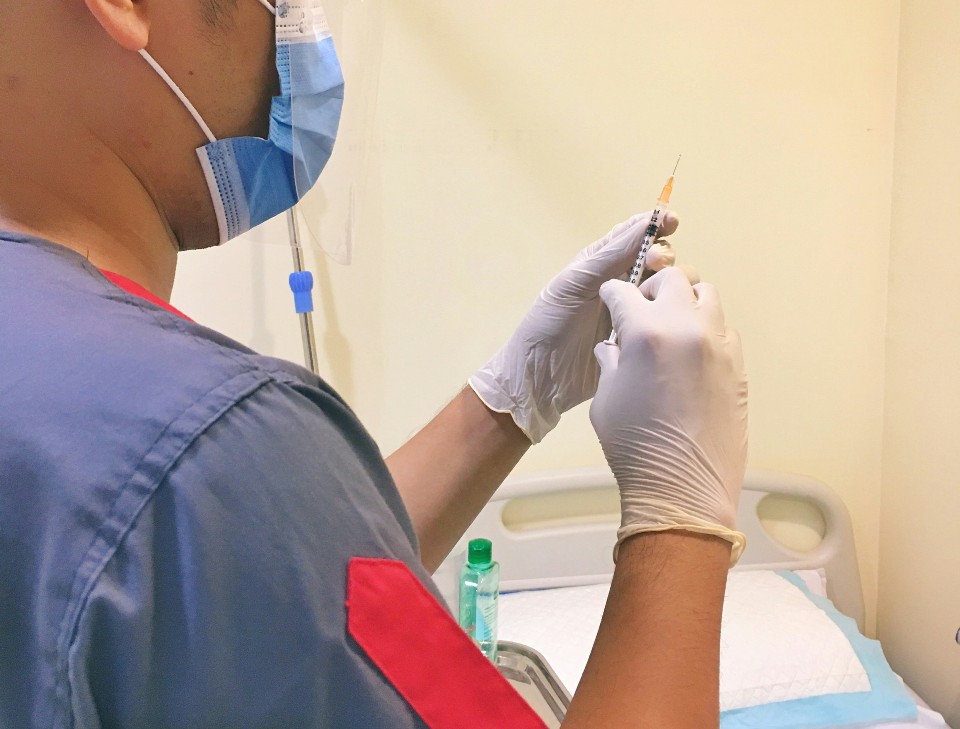APPLETON – With measles spreading around the country, health departments in northeast Wisconsin are jointly recommending all people who live locally or will be visiting during the NFL Draft check their protection against the measles virus.
The NFL Draft (scheduled for April 24-26) will bring tens of thousands of people from across the country to northeast Wisconsin, including hotspots like Texas.
Although there currently are no reported cases in the state of Wisconsin. the City of Appleton Department of Public Health, Calumet County Public Health Division, the City of Menasha Health Department, Outagamie County Public Health, and Winnebago County Public Health say that as of April 10, the Centers for Disease Control and Prevention (CDC) reports 712 confirmed measles cases, affecting children and adults, in 24 states and New York City.
The CDC reports 97% of confirmed cases this year are among people who are not vaccinated against measles or have an unknown vaccination status.
“Measles can be prevented through vaccination,” said Natalie Vandeveld, Health Officer for Outagamie Public Health. “Two doses are 97% effective at preventing measles, and one dose is around 93% effective.”
“Measles spreads very quickly and is one of the most contagious diseases,” said Kristine Hutter, Health Officer for the City of Menasha Health Department. “If they are not vaccinated or have not previously had measles, 9 out of 10 people who are around someone who has measles will become infected. A person infected with measles can spread the virus to others four days before and up to four days after the rash develops.”
Measles spreads through coughing and sneezing. The virus can remain in the air and infect people for up to two hours after an infected person leaves a place.
Measles symptoms begin with a fever, cough, runny nose, and red and swollen eyes. A rash then develops that usually spreads from the head to the rest of the body. Measles can cause more serious symptoms, especially in babies, pregnant women and people who are already sick. Complications include ear infection, pneumonia, and encephalitis, inflammation of the brain.
“If you suspect you or your child might have measles or have been exposed, call your health care provider or healthcare facility before arriving,” said Doug Gieryn, Health Officer for Winnebago County Public Health. “This will help staff prepare for your arrival and create a safe environment for everyone.”
The measles vaccine is part of the Mumps, Measles, Rubella (MMR) combination vaccine. One dose is usually given at 12-15 months of age. A second dose is given before the start of kindergarten at 4-6 years of age. Check with your local health department or healthcare provider for vaccine eligibility.
“To prevent serious illness, it’s important everyone is up-to-date on the MMR vaccination, especially children,” said Chuck Sepers, Health Officer for the City of Appleton Department of Public Health. “Protect yourself and the community by getting vaccinated.
You can check your immunization records online at the Wisconsin Immunization Registry (https://www.dhfswir.org/PR/clientSearch.do) or call your health care provider to make sure you have received the recommended doses. There is no national organization that maintains vaccination records. Out-of-state visitors should check with their state health departments to see if they maintain a vaccination registry.
Someone is considered immune to measles if they:
- Were born before 1957, OR
- Have laboratory proof of immunity, OR
- Have documentation of adequate MMR vaccination:
- One dose for preschool-aged children and adults not at high risk of infection.
- Two doses for school-aged children (grades K-12) and for adults at high risk (health care personnel, international travelers, and students at post-high school educational institutions).
Some local health departments offer free vaccines to uninsured children and children with Medical Assistance, as well as for some adults who are eligible. Call your local health department for more information or to make an appointment.
To learn more about measles, visit the Wisconsin Department of Health Services website: https://www.dhs.wisconsin.gov/immunization/measles.htm



